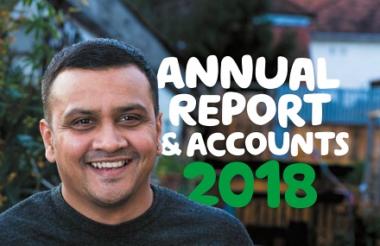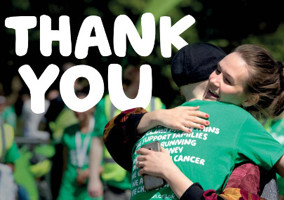Macmillan Cancer Support’s annual income fell by £17m to £235.7m in 2018, according to recently filed documents.
The charity, which gets almost all its income from fundraising, said the drop was due to GDPR restrictions and “a general trend of fewer people making donations”.
Macmillan’s income fell from a record £252.7m to £235.7m, with its fundraised income falling from £247.7m to £230.8m, according to its accounts for the year ending 31 December 2018.
The charity’s income from donations fell by £12m from £145.1m to £133.0m, while legacies decreased by £4.5m to £80.0m. Its grant income also fell from £831,000 to £158,000.
'Challenging times'
Lynda Thomas, chief executive, said in a forward to the accounts that it was a “challenging time for the sector”.
She said: “We saw a general trend of fewer people making donations and new rules around who we can contact which had an impact on our fundraising.
“Brexit negotiations have caused much uncertainty, both in terms of fundraising and the implications for health and social care. However, we have a strong strategy and an excellent team of people to help us rise to the challenges.”
£30m net loss
Meanwhile, Macmillan’s expenditure rose from £256.4m to £260.7m, with it spending £3m more on charitable activities in 2018.
Taking into account a £5.8m net loss on investments, the charity made an overall £30.9m net loss during the year.
As a result of this deficit, the charity’s reserves decreased by more than £20m from £30.6m to just £9.1m at the end of 2018.
However, the charity also scrapped its £20m target level of reserves last year, choosing instead to focus on holding an appropriate level of liquidity cover.
This new policy means the charity now aims to retain £100m in investments and cash which are capable of being liquidated at relatively short notice. The charity held £180.9m at the end of 2018.
More people supported
Despite the charity’s financial challenges, it supported 1.9 million people in 2018, up from from 1.6 million in the previous year.
Thomas said in the foreword: “We offered a listening ear, gave expert advice and support with symptoms, work, cancer and finances – and did our best to be there when people needed us most.”
However, the charity aims to support even more people, with an estimated 2.5 million people currently living with cancer in the UK, and this number expecting to rise to 4 million by 2030.
Claire Rowney, executive director of fundraising, marketing and communications said the charity was innovating to meet these targets.
She said: “If we are to reach the ever growing number of people living with cancer in 2019 and beyond, we need to continue to look at not just new fundraising products but to the organisation’s strategy as a whole.
“That includes how we communicate and reach our supporters digitally, how we work with our corporate partners to drive income and impact and how we work alongside other partners organisations such as the NHS.
“Ultimately, we need to constantly challenge ourselves to make sure that we are doing the absolute best we can with the money we raise, for people living with cancer, and to ensure we can continue to raise money and support the growing numbers that need us.”
Modern slavery
Meanwhile, the charity produced a statement on modern slavery for the first time in its accounts.
Research by Charity Finance magazine last year found that Macmillan was the largest charity not to produce a statement online.
Its statement now reads: “We want to ensure there is no modern slavery or human trafficking in our supply chains or in any part of our business.
“When we review our contracts, and develop new ones, we look at the possibility of modern slavery, communicate this with our colleagues, and when we feel there is the potential for slavery, we take actions to change our arrangements.
“We continue to monitor and make improvements in our contract management and share developments with our employees. We want our supply chain to be free from modern slavery.”
The Modern Slavery Act requires all businesses with a turnover of more than £36m to produce annual statements on modern slavery in their organisation’s supply chain.
However, some charities say the legislation does not apply to them because the Act’s definition of turnover is only the amount charged for goods and services minus any discounts and taxes paid.
|
Related articles












